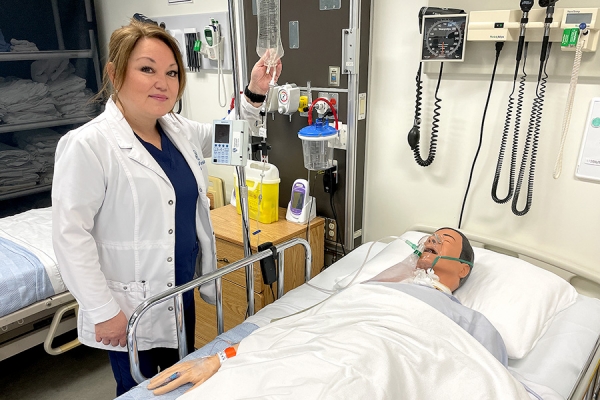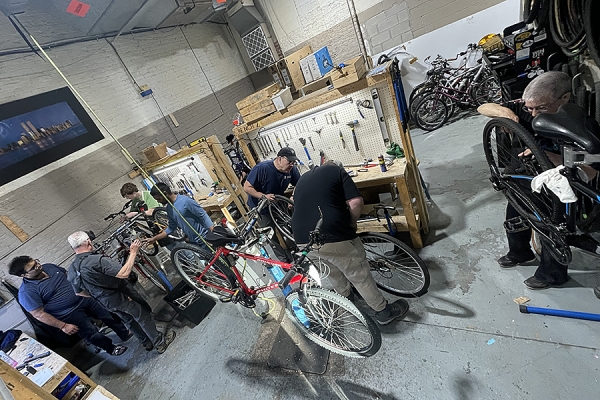 Clinical professor Tracey Seguin credits compassion, care, work ethic, and family support for success in her life and career.
Clinical professor Tracey Seguin credits compassion, care, work ethic, and family support for success in her life and career.
In celebration of National Nursing Week, the Faculty of Nursing thanks all nursing professionals for their unwavering dedication to provide care to our communities. It is shining a spotlight on Tracey Seguin, a UWindsor alumna and sessional instructor whose work ethic and dedication to her community is deeply rooted in family.
Seguin’s grandparents, Riki (Toramatsu) Endo and Sarah (Miyo) Moriyama Endo, emigrated from Japan and settled in LaSalle in 1946 with only determination to succeed as farmers.
Life always presented challenges. Seguin’s grandmother successfully advocated for basic utility services to be implemented in her farmland neighbourhood. She also augmented the family’s income as a seamstress working out of the family home while raising four children.
Seguin’s father, Pat (Tatsuo) Endo, along with business partners, established and grew a successful tool and mold company called Redoe Mold. It is now a global manufacturer and an integral part of the LaSalle and Windsor-Essex business sector. So, it was natural for Seguin to work hard and provide for her own family while giving back to the community.
Seguin became a sessional instructor in 2013 at Faculty of Nursing after working as a frontline registered nurse for over 30 years at Windsor Regional Hospital.
“It wasn’t easy considering I was working full-time, helping raise three boys, and going back to school to satisfy qualification requirements as a sessional instructor,” says Seguin. “And when I accepted the role, I was a bit intimidated at first.”
Mutual respect is intrinsic in nursing, and the faculty was no exception. This environment allowed Seguin to feel welcome and eager to pass along her experience and knowledge.
Now in her 11th year as a sessional instructor, she reflects on some of the recent challenges that have faced students. She points out that the isolation brought upon by the pandemic inhibited their communication skills.
“It was difficult when students had to practise skills at home,” says Seguin. “There is no substitute for in-person learning and the students and faculty really had to work hard making up for lost time because clinical labs are where students have to think, plan, and execute while communicating with simulation lab patients, other students, and instructors.”
Seguin is mentoring new sessional instructors and finds fulfillment in leadership and academia, appreciating how clinical environment theory rolls into practice.
Dean of the Faculty of Nursing Debbie Sheppard-LeMoine notes that the dedication of sessional instructors such as Seguin enriches the learning experiences of nursing students while contributing to collaborative teaching with all faculty members.
“We’re recognized for our excellent programs and it’s because of our faculty and instructors,” says Dr. Sheppard-LeMoine. “They are the stars that are responsible for delivering meaningful education that produces outstanding UWindsor nursing graduate who are in demand by employers.”
Seguin adds that time management and critical thinking are keys to student success, along with one of the most important virtues: caring.
“That is something I can’t teach,” says Seguin. “Caring has to come from the individual.
“I know this might sound very cliche, but nurses do make a difference, and it might just be that one patient that remembers you and says, ‘Hey, thank you so much. You were there to listen to me, or you held my hand when I was scared when I was getting my shot.’”
Seguin feels that seeds of success can always be planted, but it is proper care and hard work that will allow them to grow and flourish.







